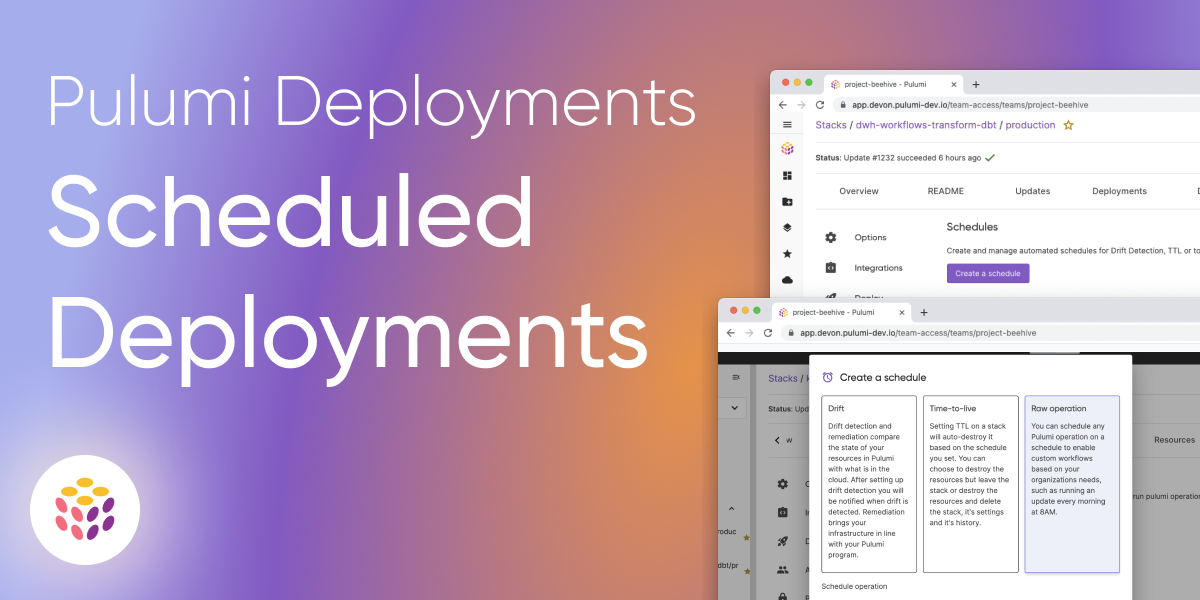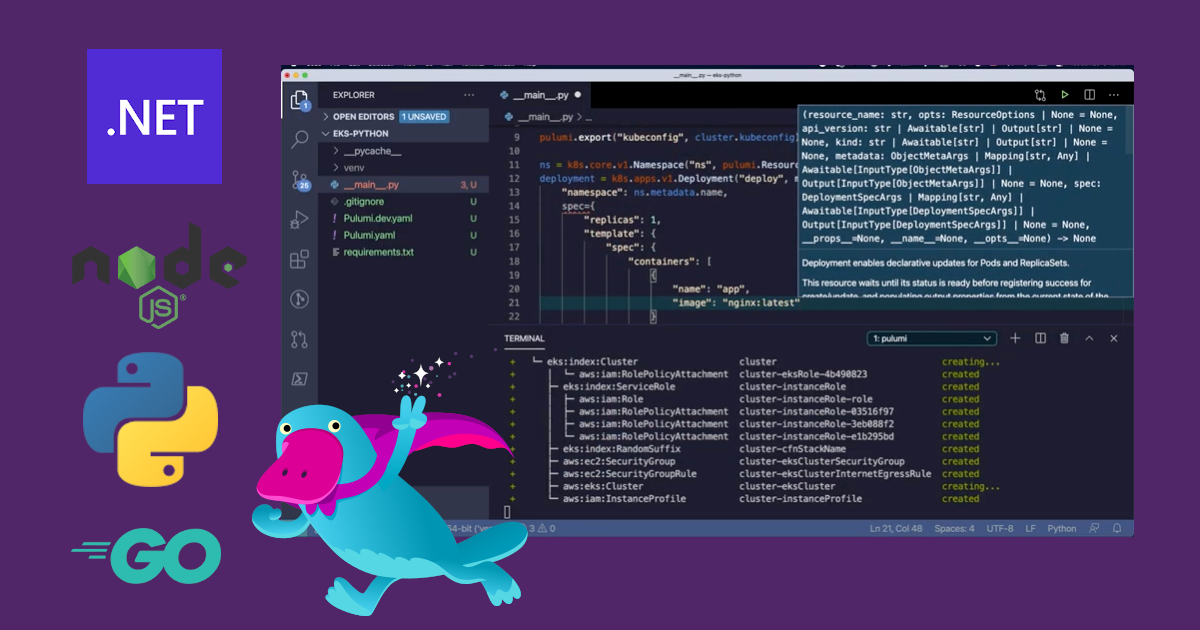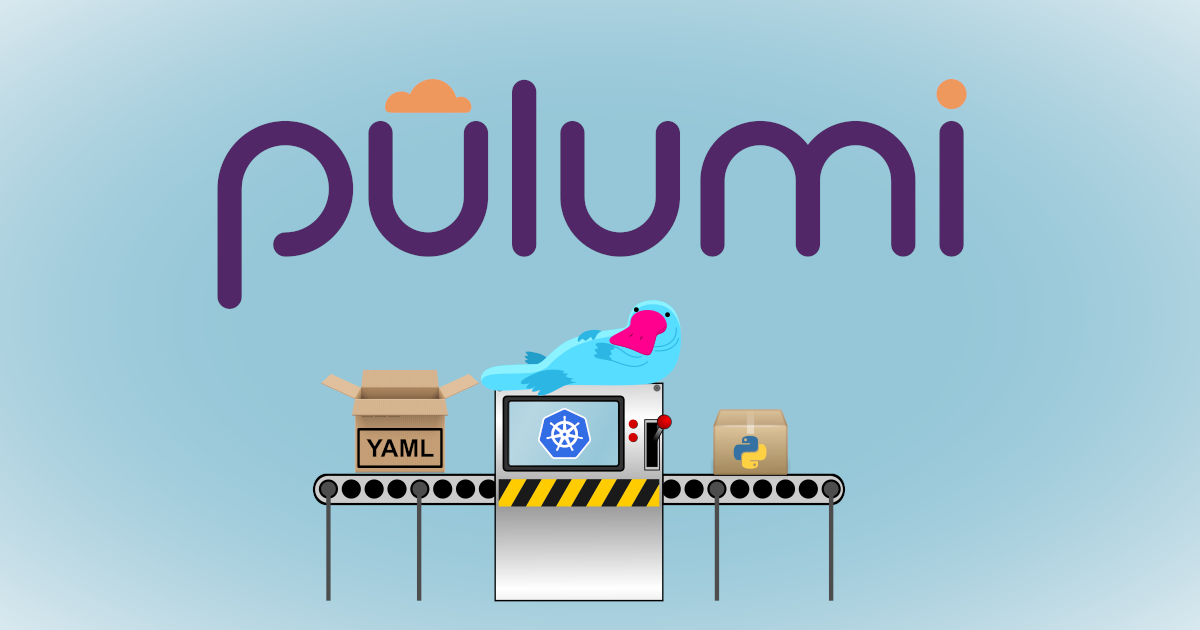Kubernetes-native Option for Pulumi Deployments Customer-Managed Agents

We are excited to announce the availability of Kubernetes-native support for Pulumi Deployments Customer-Managed Agents, further enhancing the flexibility and control over your infrastructure deployments. This new feature allows you to self-host deployment agents within your Kubernetes environment, bringing the same power and flexibility of Pulumi-hosted deployments to isolated environments.
Customer Managed Agents: Flexibility and Control
Customer Managed Agents, announced earlier this year, allow you to self-host deployment agents, delivering the power and flexibility of Pulumi Deployments within your own infrastructure. Here’s how you can benefit:









